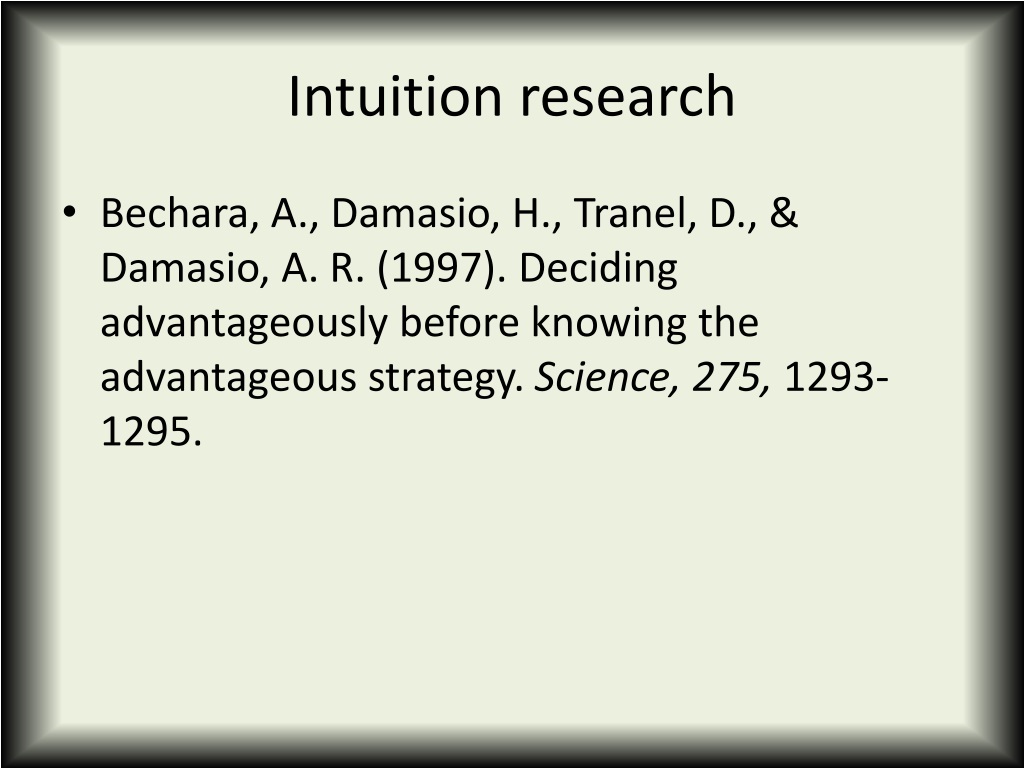Bechara Iowa Gambling Task

Bechara’s Gambling Task is more popularly known as Iowa Gambling Task (IGT) which was studied by Antoine Bechara, Antonio Damasio, Hanna Damasio, and Steven Anderson, researchers from the University of Iowa. In this psychological task, the participants’ decision-making skills were observed as they played a virtual card game. Four decks were presented and each one had cards that could give rewards or penalties through game money. Some decks were “good” in the sense that they tend to give more rewards and some were “bad” since they held more penalizing cards. The findings showed that most participants become fairly good at consistently choosing “good decks” after 40 to 50 selections. However, the participants with orbitofrontal cortex (OFC) dysfunction still continued to select the bad decks. Also, unlike their healthy counterparts, the patients with OFC did not show stress reactions in response to losing a lot of game money caused by choosing the bad decks.
Bechara’s Gambling Task is more popularly known as Iowa Gambling Task (IGT) which was studied by Antoine Bechara, Antonio Damasio, Hanna Damasio, and Steven Anderson, researchers from the University of Iowa. In this psychological task, the participants’ decision-making skills were observed as they played a virtual card game. Four decks were presented and each one had cards that could give rewards or penalties through game money. Some decks were “good” in the sense that they tend to give more rewards and some were “bad” since they held more penalizing cards. The findings showed that most participants become fairly good at consistently choosing “good decks” after 40 to 50 selections. However, the participants with orbitofrontal cortex (OFC) dysfunction still continued to select the bad decks. Also, unlike their healthy counterparts, the patients with OFC did not show stress reactions in response to losing a lot of game money caused by choosing the bad decks.
- With respect to the study of impaired decision-making in addiction, the Iowa Gambling Task (IGT; Bechara et al., 1994) has been regarded as the most widely used and ecologically valid measure of decision making in this clinical population.
- The Iowa Gambling Task (IGT; Bechara et al., 1997) is arguably the most popular decision task used in studies of clinical samples. Players choose from four “decks of cards” over a series of trials, with each selection resulting in a monetary reward and occasionally a monetary loss.

Bechara Iowa Gambling Task Force
And one of the ways this can be tested is with the Iowa Gambling Task. First designed by Antoine Bechara and others in 1994, the test was originally used to measure decision-making abilities. This decision-making required that the participants simply select a card from one of four decks – hardly a tricky bet.